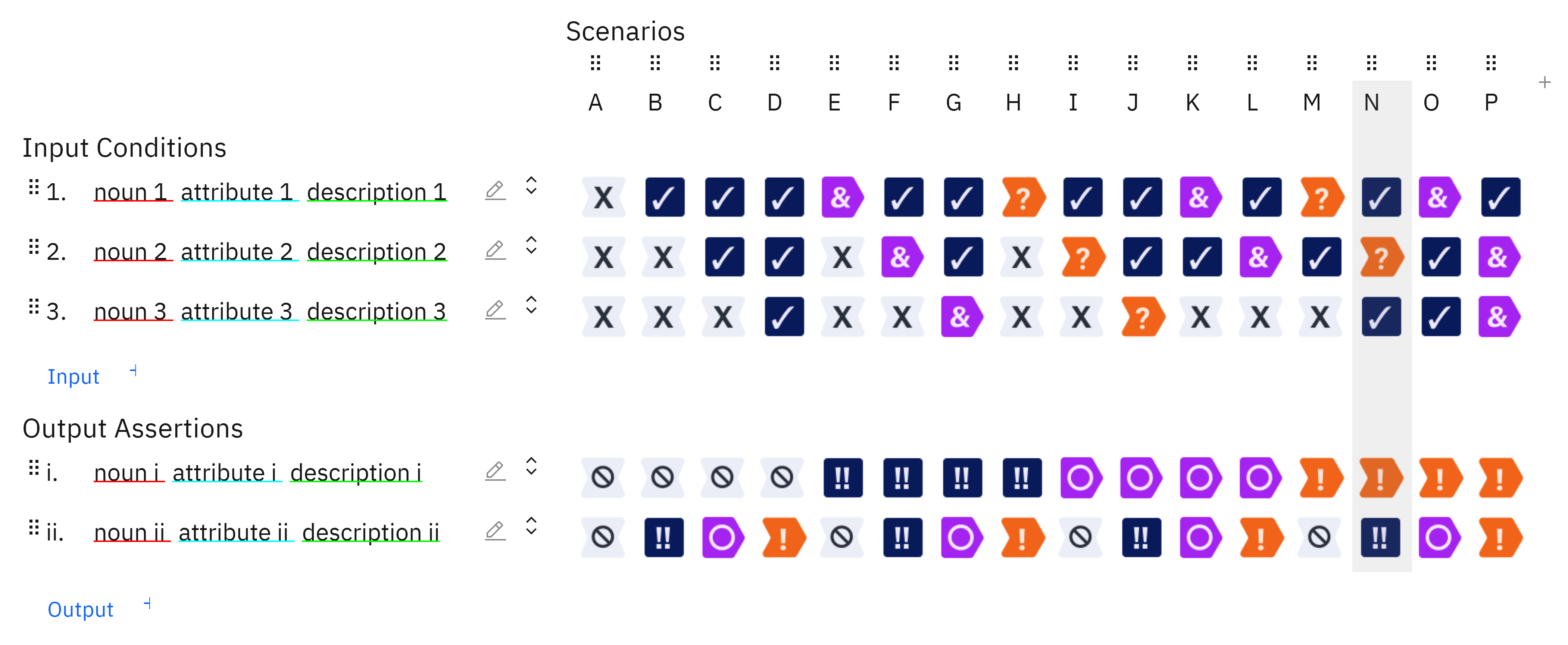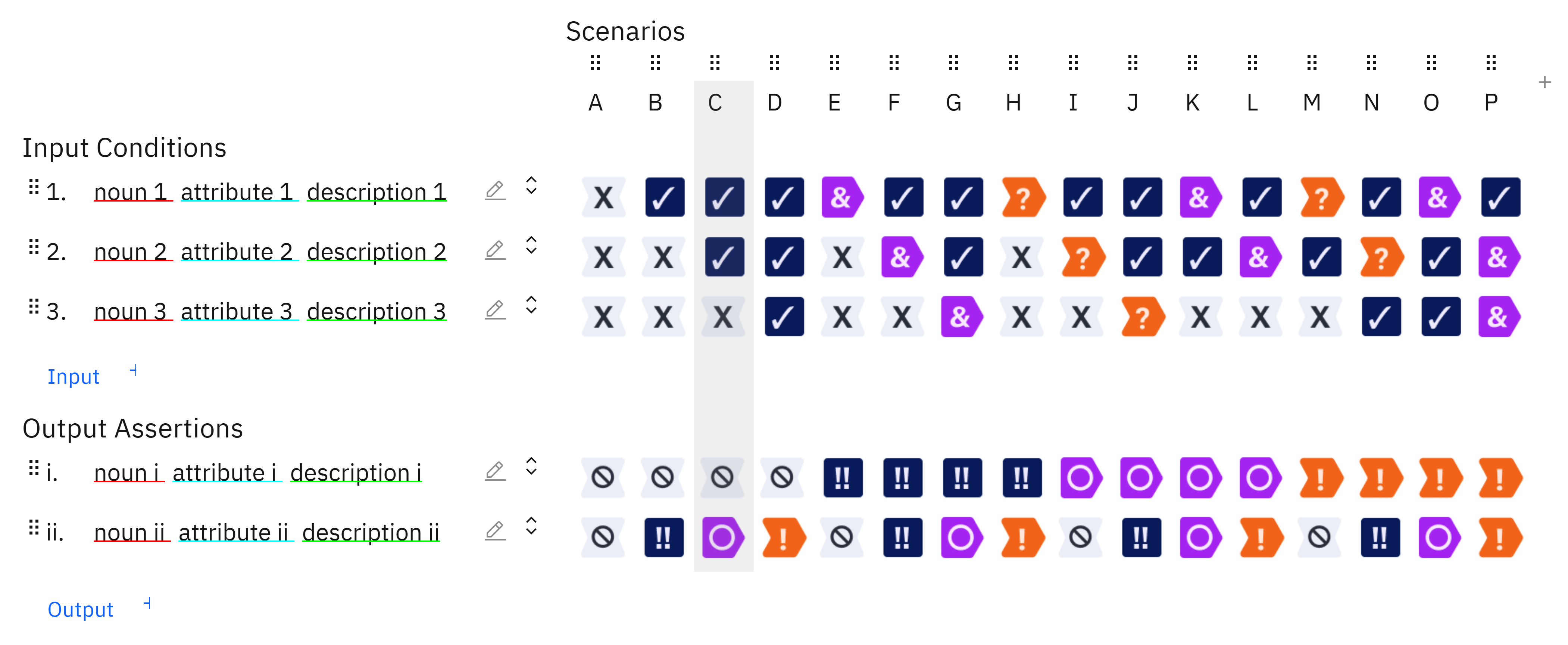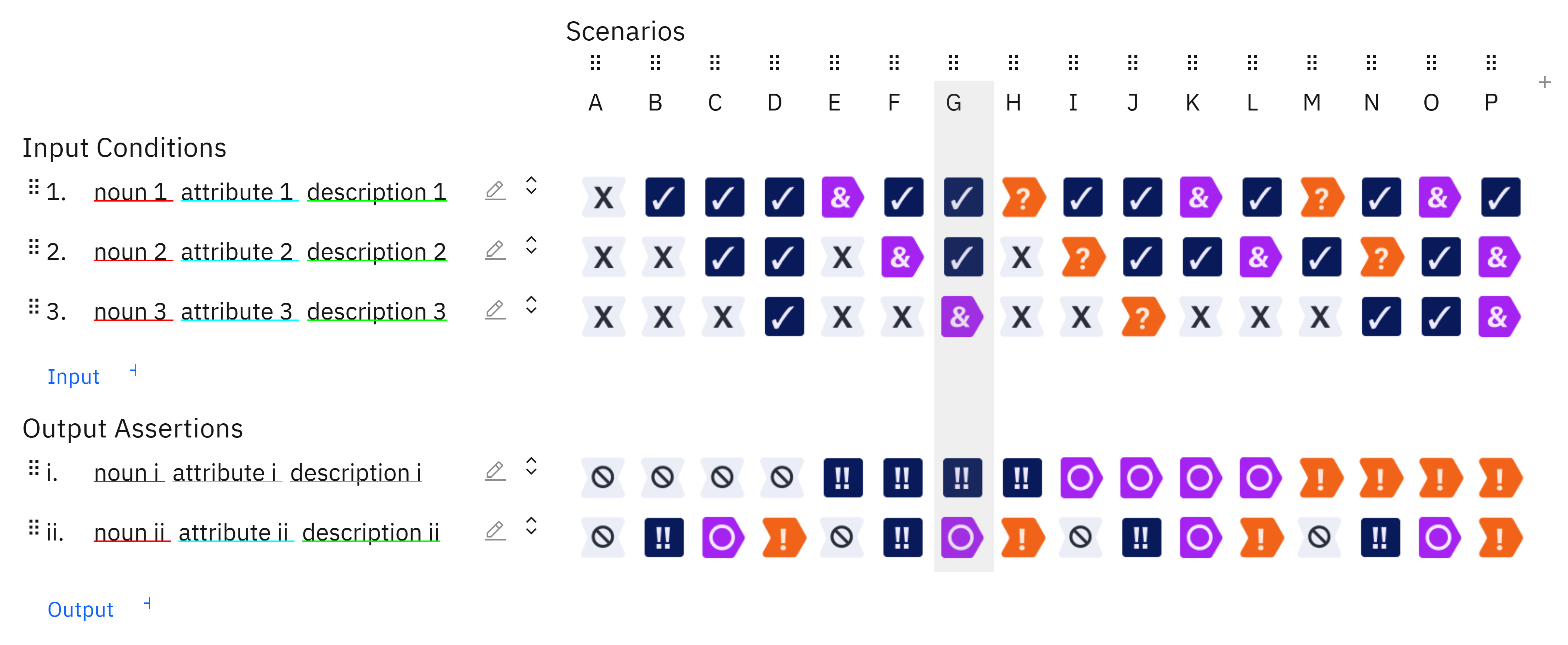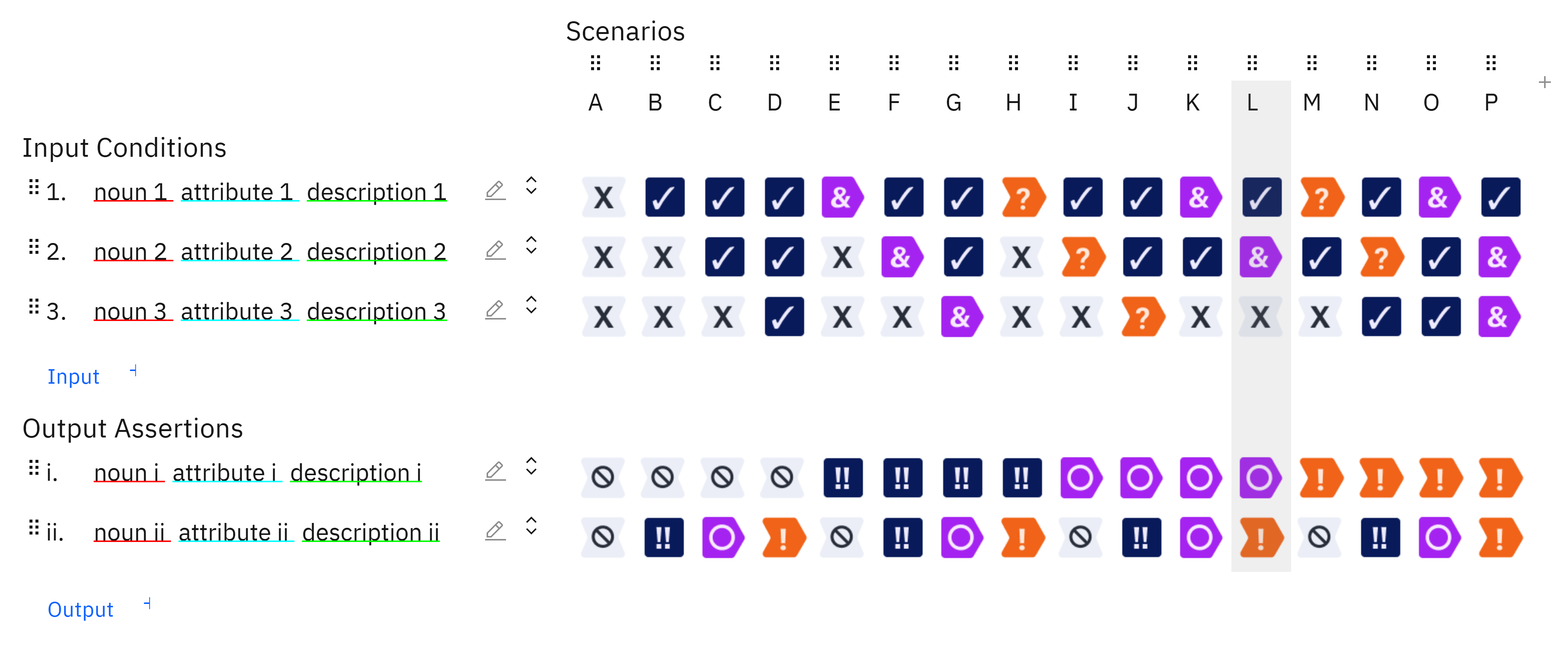100% Free/libre/open
Data With Direction.
Expressions of obligation, permission or encouragement constitute a distinct class of data of the type:
IS + RULE ⟾ OUGHT
Instantaneously discover and transmit rules-as-data in a way that is directly usable by anyone and by any platform, for any purpose, in any language.
Reference Implementations
Rule Taker
The rules you want to know about, now.
Rule Reserve
Where rules go to be found.
Rule Maker
Write the rules you want to see.
Concepts And Operations
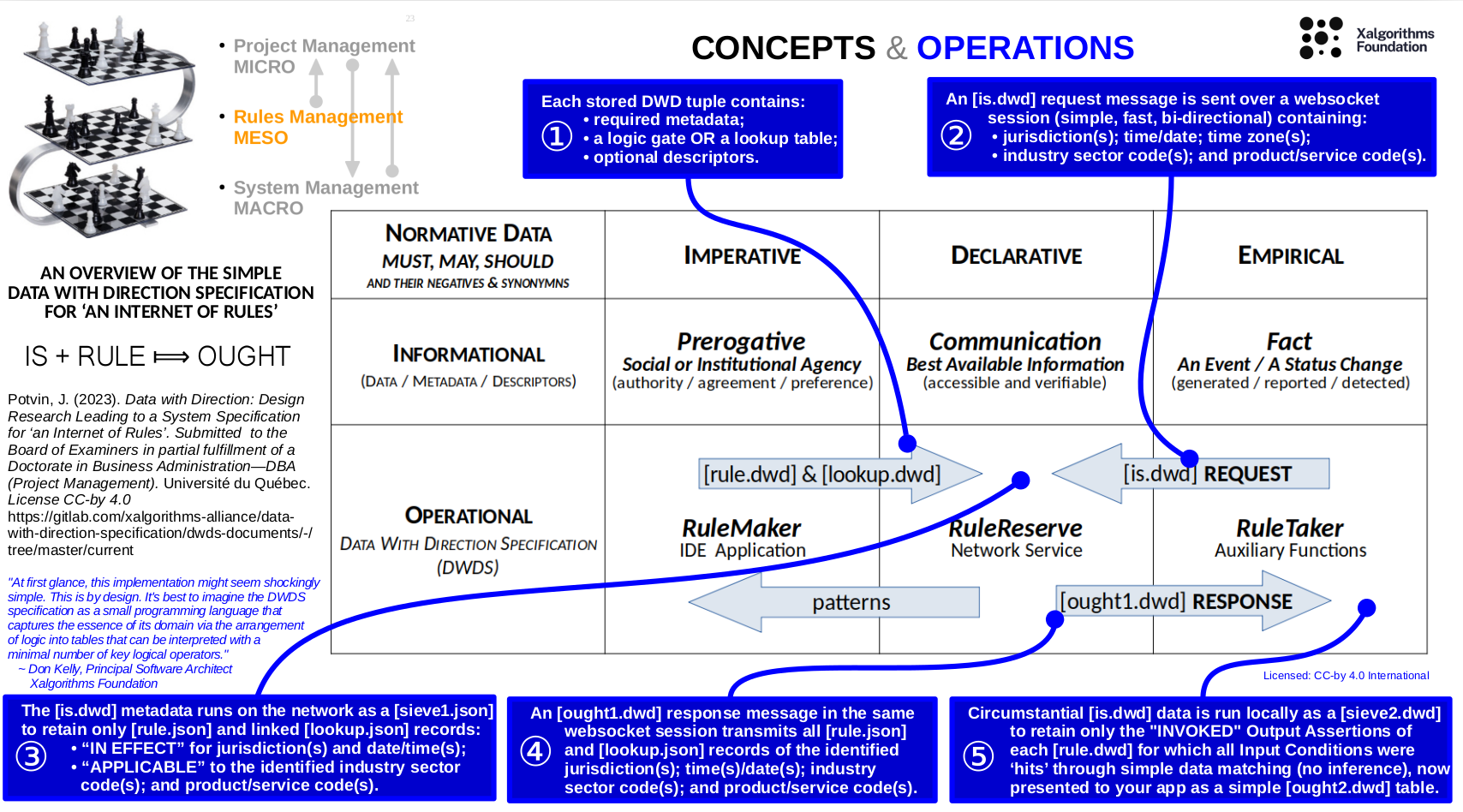
RuleMaker
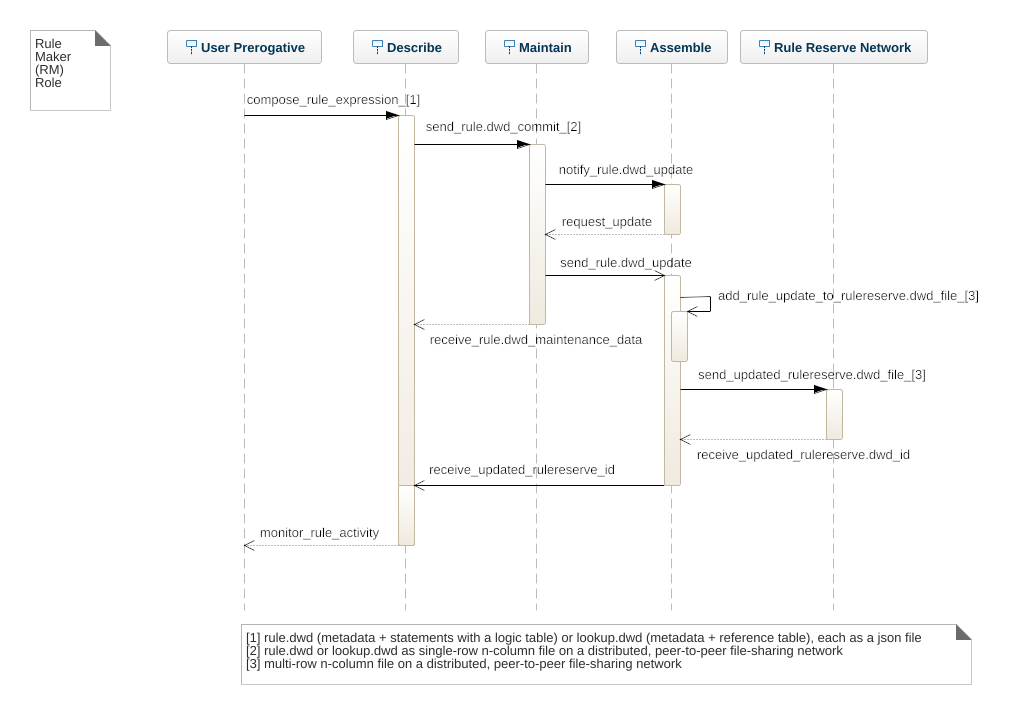
RuleReserve
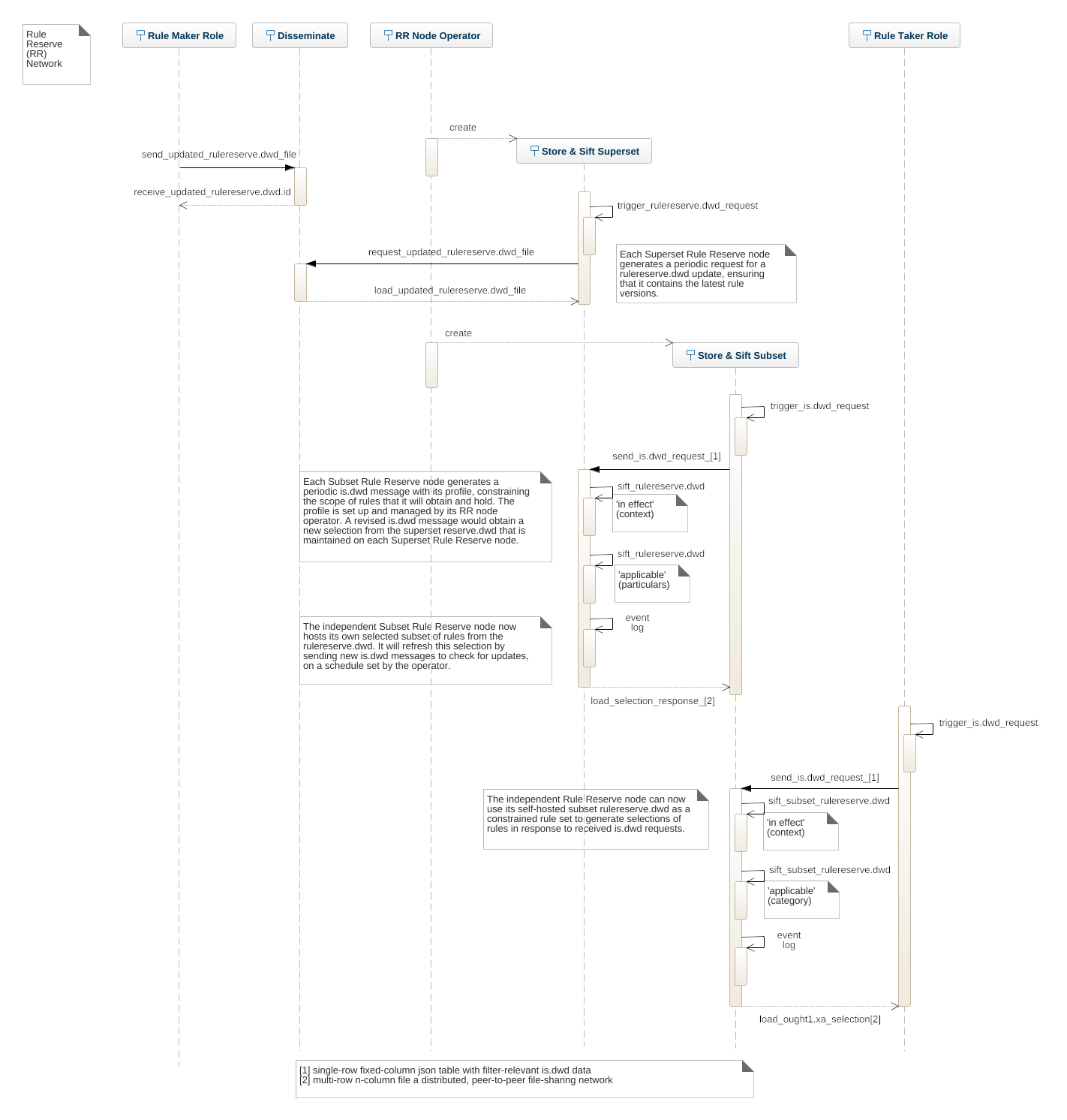
RuleTaker
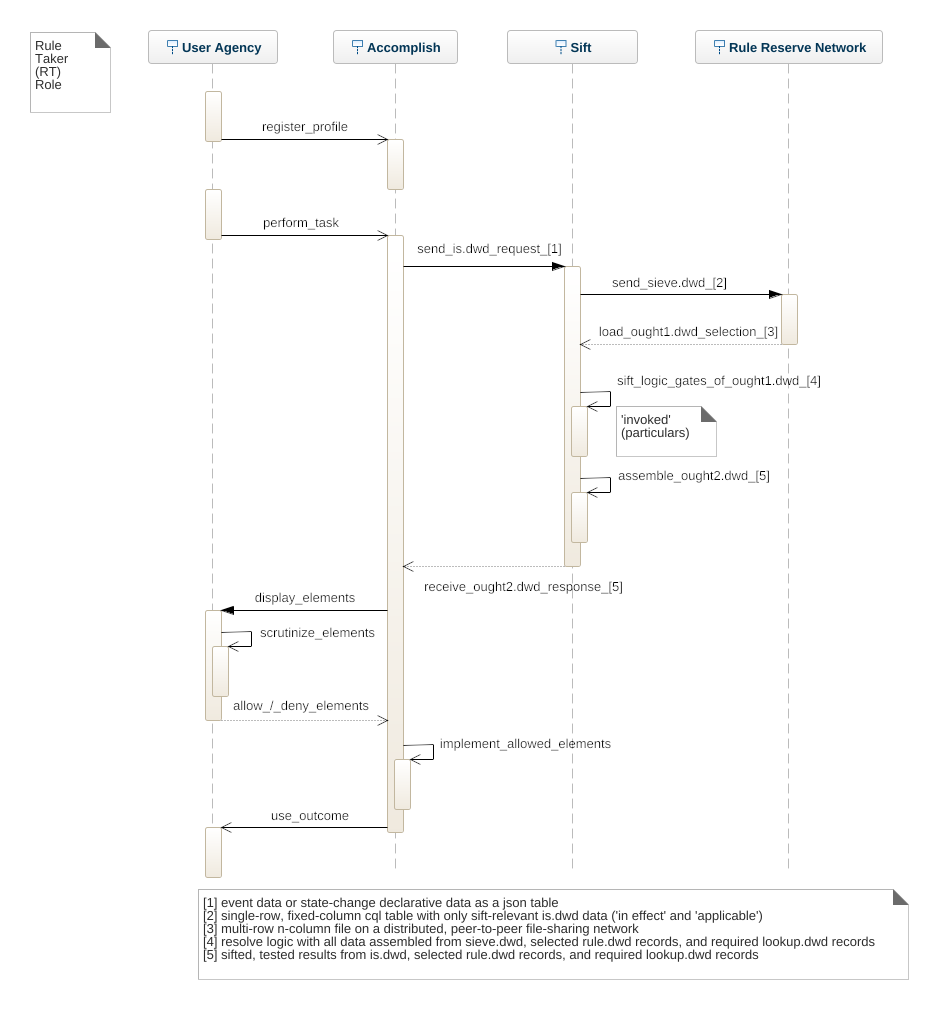
Obligation, Permission and Encouragement
expressed with terms
MUST, MAY and SHOULD
and their various negatives and synonyms
Rules-as-Data
By Anyone,
For Any purpose,
On Any platform,
In Any language.
Fast functional knowledge of rules that are deemed to be:
- ‘in effect’ for dates/times and jurisdictions;
- ‘applicable’ to your industry, product or service context; and
- ‘invoked’ by a particular circumstance of the moment.
What is a rule?
Assertion of a practical, logical, ethical or aesthetic relation between what ‘is’ and what ‘ought’ to be, established among two or more individuals or entities.
IS + RULE ⟾ OUGHT"Data With Direction Specification" (DWDS)
The RuleMaker application
The RuleReserve network service
The RuleTaker component
A Practicable Business Solution:
A DWDS describes how to create 'an Internet of Rules': a decentralized distributed network service for anyone to author, publish, discover, fetch, scrutinize, prioritize and, with agreement of direct stakeholders, automate rules that are ‘in effect’, ‘applicable’ and ‘invoked’ by a circumstance, across any informatics network, with precision, simplicity, scale, speed, resilience, and deference.
The Network
Effect
The value of 'an Internet of Rules' to any individual user increases as there is greater adoption across the entire user base:
- Greater performance by each is more attainable the more RuleReserve gets populated by all;
- Distribution of effort enables economies of scale (lower per-user cost; spread cost of innovation); and
- Joint benefits of a generic network usable by any platform (write once, run anywhere).

We are a decentralized community of contributors that are collaborating across disciplines and attitudes to design general purpose systems that work.
Multi-
National
Scale
Lingual
Temporal
100%
Free / Libre / Open
The Data With Direction Specification (DWDS) in a Nutshell
Read →We've Been Listening,
Thinking, Building and Refining.
And now, with a complete end-to-end design, we're excited to share DWDS (Data With Direction Specification), our reference implementations, and use cases in development under Xalgorithms-hosted working groups.
How We Think
Core Documents →What We Build
Development Docs →How We Communicate
Communication Docs →Everyone's Input
Email Archive →Earth Reserve Assurance (ERA)
A framework improving stability of worth while incentivize long term assurance of commodities with distributed verifiability.
Learn More →Xalgo4Trade
Xalgorithms’ Internet of Rules is a general-purpose, transformative method for 'rules-as-data' to simplify, clarify and automate regulatory conformance and efficiency in cross-border trade.
Learn More →